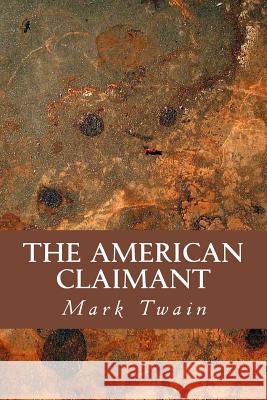The American Claimant » książka
The American Claimant
ISBN-13: 9781535264563 / Angielski / Miękka / 2016 / 112 str.
The American Claimant is an 1892 novel by American humorist and writer Mark Twain. Twain wrote the novel with the help of phonographic dictation, the first author (according to Twain himself) to do so. This was also (according to Twain) an attempt to write a book without mention of the weather, the first of its kind in fictitious literature. Indeed, all the weather is contained in an appendix, at the back of the book, which the reader is encouraged to turn to from time to time. The American Claimant is a comedy of mistaken identities and multiple role switches. Its cast of characters include an American enamored of British hereditary aristocracy and a British earl entranced by American democracy. Colonel Mulberry Sellers: An eccentric white-headed old man who becomes the rightful heir to the Earl of Rossmore after the death of his relative, Simon Lathers. According to his wife, Sellers is a "scheming, generous, good-hearted, moonshiny, hopeful, no-account failure" who is well beloved for his generosity and approachability. Although many of his eccentric money-making schemes are failures, he occasionally "makes a strike," as he calls it, and makes quite a bit of money. One such strike is the exceedingly popular "Pigs in the Clover" toy which he invented and patented. According to the tin signs by his door, Sellers is an attorney at law and claim agent, a materializer, a hypnotizer, and a mind-cure dabbler. He has also been named "Perpetual Member of the Diplomatic Body representing the multifarious sovereignties and civilizations of the globe near the republican court of the United States of America." The explanatory note at the beginning of the novel indicates that Colonel Sellers is the same character as Eschol Sellers in the first edition of Twain's earlier novel Gilded Age(1873) and Beriah Sellers in later editions. The note also identifies Colonel Sellers as the same character as Mulberry Sellers in John T. Raymond's dramatization of Gilded Age.
Zawartość książki może nie spełniać oczekiwań – reklamacje nie obejmują treści, która mogła nie być redakcyjnie ani merytorycznie opracowana.











